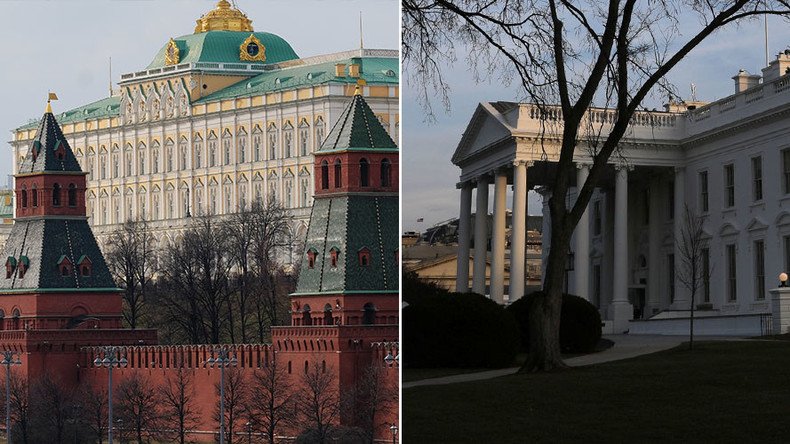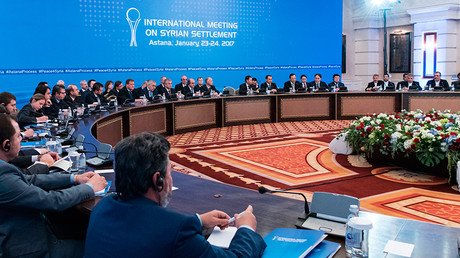Bad connection: US-Russia partnership faces 'natural resistance' from Congress hawks

The Putin-Trump phone call was very significant, but Trump will consider his options carefully when it comes to Syria due to excessive resistance from hawks in both the Democratic and Republican parties, says foreign policy analyst Michael Hughes.
Russian President Vladimir Putin and US President Donald Trump held an urgent phone call on May 2 to discuss crucial issues, including the Syrian crisis and the current tension over North Korea.
The conversation came after the Russian President welcomed the German Chancellor, Angela Merkel, to the Black Sea resort town of Sochi for talks.
RT: How significant was a phone call between Trump and Putin at this point?
Michael Hughes: I think it is very significant just because of everything that has happened. We may not know all the details, for example, how much detail did they go into over the Tomahawk strike in Syria. It is significant, and what came out of it, the Russian read out was more detailed than Trump’s read out. But what is concerning was talk of a [Syrian] safety zone. I don’t know if the White House is pushing that more. I think that was significant. When I read the White House read out and that they are talking safe zone or de-confliction zone in Syria, which is always a problematic proposition; easier said than done.
I would have thought the US and Russia could find common ground if we focused on eliminating the dreaded threat of radical jihadist Islam in Russia, the US, in the Middle East, Western Europe and around the world. That is a clear area of common interest where frankly Russia may be more threatened by this than the US. - Charles Ortel, private investor, and writer
RT: Although Trump called for cooperation on a number of issues, will he face resistance back home?
MH: Yes, he will face the natural resistance in the Congress among the hawks, from McCain and but even on the Democratic side. Most of the political establishment seems dead set against cooperation with Russia altogether. Considering there are even conducting probes for Trump daring to cooperate with Russia on any level, including some of his aides. There will be resistance, doubts, heavy skepticism. And there is always the perception of Trump getting too close, cooperating too much with the Russians because of the history of the elections. Trump is going to try to play it smoothly based on the public sentiment that he has been better at reading; how deep he is going to cooperate with Russia. He seems to be a little bit of an animal of the media, ironically… If he starts cooperating with Russia and he feels a lot of heat, he will have a tendency to back off, I think.
RT: With all of the high-level meetings going on at the moment, might we be about to reach a turning point on Syria?
MH: That is the million-dollar question. I think Trump’s mind isn’t as much on Syria as we would like or the administration. It seems like an afterthought. They bomb it and, okay, we took care of that based on the pictures we saw. A turning point? That is a stretch. I think it is going to take a lot for the US to do what they need to do to make it a turning point, which is really back the peace process and even support the operations, or don’t interfere with operations and help the Syrian government and Russia to defeat the opposition, Islamic State and other so-called ‘moderate groups’ that really are not moderate. I just can’t conceive of Trump doing anything too creative in the near future on Syria because he is going to face a lot of feedback on cooperating with Russia on anything, especially Syria, which seems like a real hot button politically.
The statements, views and opinions expressed in this column are solely those of the author and do not necessarily represent those of RT.













